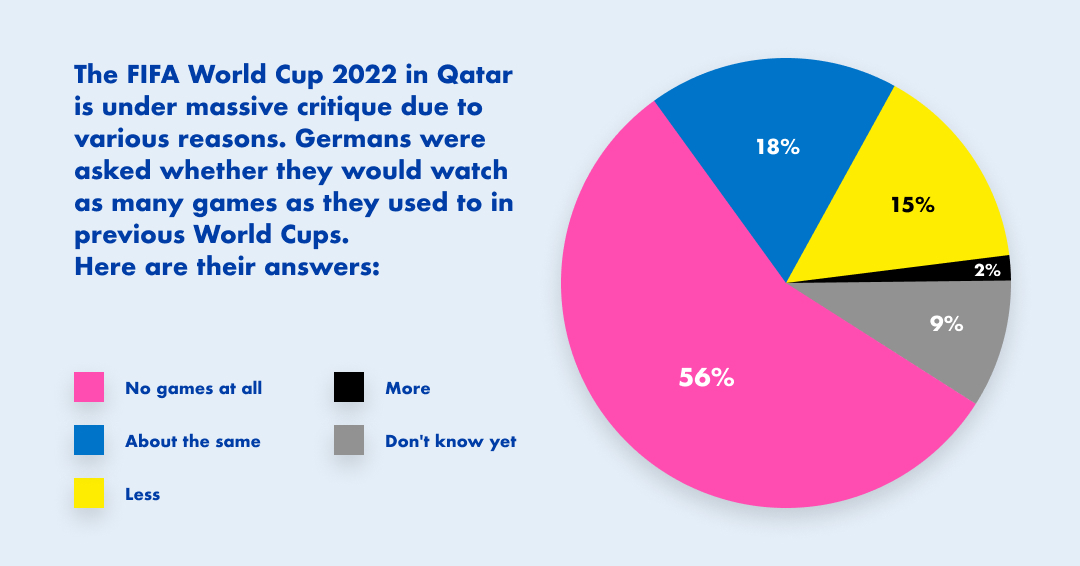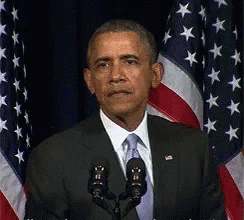Issue #105
Issue #105
Guten Morgen!
Welcome to another edition of the Krautshell! This week, our House’s View takes a deep dive into the state of the German economy, discussing some underlying issues with possible long-term consequences. In our main articles, we take a look at a new draft law about data centers and how that’s bad news for tech companies in Germany, the German reaction to Tuesday’s midterms (as if you hadn’t heard enough about that already), and another government decision blocking Chinese investments in a critical technology – semiconductors. Finally, enjoy Szilvia’s insights into the real motives behind the lowering of the voting age.
As always, have a great weekend!


Anna Christian
FIRST, SOME SOLID INTEL:
Energy Efficiency (Draft) Law: Lots of Hot Air
While the EU institutions are battling it out to fine-tune details of the updated Energy Efficiency Directive before the end of the year, Germany came out like:

Specifically, in October Scholz & co. revealed a draft for an Energy Efficiency Law which looks to tighten up Germany’s energy “leakage” during these crisis times. Seems logical enough, but the Energieeffizienzgesetz has ruffled more than a few feathers, namely in the data center sector. Here’s the scoop.
First, the draft law would require that by 2025 data centers are powered by 100% renewable energy. Being completely honest: Germany would have to dam up every river, strike a deal with the weather gods to somehow create more sunny days, and relocate the country to hurricane alley to create enough energy by that deadline. Also, many data centers are considered critical infrastructure that need a constant energy supply and renewables are anything but reliable (try taking a hot shower on a cloudy day in a house with solar power…). You quickly have a disaster on your hands.
Then, hot air. In its current version, the law stipulates that data centers need to make 30% of their excess heat reusable. Germany has a gas shortage, so why not use that hot air to heat people’s homes? Gold star for connective thinking, F for application. First, almost no data centers are hooked up to the heating network. Second, excess heat averages around 73°F, but a temperature of at least 150°F is needed to supply homes. By the time you’ve heated up the hot air even more, you’ve wasted further energy, and you’ve significantly reduced the output of these data centers to do things like… I don’t know… digitize your economy and government? Germany really will prioritize anything before rapid digitization.
The law hasn’t been finalized yet, but we’re expecting some very public and loud complaints from more than a few actors. We’ll keep you posted.
Looking over the Great Pond – German Reactions to the Midterms
Well, whenever you have a Presidential election, it’s not a secret that we stay up late, make popcorn and pizzas and watch TV. However, normally no one really does that for the Midterms. Don’t blame us, it used to be not very interesting over here. This year it was different. Already heading towards the election, German politicians were worried about the results. In Europe, we mainly care about the transatlantic relationship and having a Republican majority in both chambers that might favor decreasing the US support for Ukraine could cause a potential disaster in Europe.
Well, now the “red wave” or “red tsunami” seems to be a calm river and some sighs of relief are audible in Berlin. Anton Hofreiter, member of governing Greens and spokesman of the Committee for European Affairs, interpreted the result as a good sign for Europe. Also, his colleague Alexander Graf Lambsdorff (FDP) said it was good for the transatlantic partnership that Biden came out better than expected from the midterms. And Norbert Röttgen, leading foreign policy expert from opposition party CDU, agreed that it was good the landslide victory the Republicans hoped for didn’t come. It seems that US politics is at least one topic the German government and opposition are united on (oh, the irony). Still, some worry remains with Röttgen and his colleagues that the skepticism in US democracy mainly caused by Trump could have long-lasting implications for future elections and therefor also for the transatlantic partnership. Lastly, if you ask German politicians now, probably everyone is betting on Ron DeSantis to become next presidential candidate for the Republicans. Feel free to tune in again after your next election for unsolicited comments from abroad – we got you covered.
Not so Friendly Takeovers
In recent weeks, the German government has been wrestling with a string of plans of Chinese companies to either outright buy or become shareholders of strategically important German corporations. The highest profile debate focused on whether the German government should allow a Chinese shipping group to buy a stake in a terminal at Hamburg port.
Both the EU Commission and close allies, including France, warned against the deal. All six involved German federal ministries, across the party lines of the government coalition, pushed to block the purchase for national security and sovereignty reasons. Interestingly, only the German Chancellery, which most likely was motivated by Chancellor Olaf Scholz’s trip to China in November, advocated in favor of the deal. At the last minute an agreement was reached to permit the Chinese shipping group to buy a smaller stake in the port than originally planned. Nonetheless, the debates surrounding the purchase highlighted once more the delicate balance that Germany tries to maintain between fostering good relations with a crucial trade partner and taking into account growing national security concerns.
Exemplifying the policy shift taking place in Germany at the moment, the latest attempted Chinese takeovers, which focused on two companies in the semiconductor industry, ERS and Elmos, were blocked at the request of the Minister for Economic Affairs, Robert Habeck. Particularly his party, the Greens, have pushed for taking additional measures to protect companies in key industries from being taken over by non-EU companies. Even Olaf Scholz himself, who was in favor of the Hamburg port sale, has now publicly stated that “business as usual” with China “is no longer an option”. To what extent the rhetoric of Germany’s governing coalition will translate into concrete policy shifts remains to be seen, but the winds are clearly blowing in the direction of a more assertive stance towards China.
TAKE A BREAK, GIVE YOUR EYES A REST.

Source: Infratest Dimap
THE HOUSE’S VIEW:
By Max
German Angst and Wildpinkeln
11/11 marks the beginning of carnival season in Germany, “the fifth season” for large parts of the country and either lots of fun or a total nuisance, depending on your perspective. Historically Protestant Berlin does not partake, though some of the news coming out of the economy suggests that major distractions are in order. But before we get into today’s (bleak) report, here’s a glimpse of what to expect along the Rhine river in the coming weeks – American tourists beware. (And yes, Wildpinkeln is apparently a thing.)
Morgenthau’s Revenge
Back to the (hopefully dry) ground of German realities. We’ve reported regularly on the impact of the current energy crisis on both industry and households, but today we’ll look at some of the underlying factors that drive Europe’s largest economy, and how political decisions affect its performance.
On the surface, things could be worse. New economic numbers show that Germany’s economy grew by 0.3 percent in the third quarter, which isn’t great but not a disaster, either. Employment remains robust across the board and while inflation is way up at 10,4 percent, the German state is expecting an additional 126 billion euros in tax revenue in order to help finance some of its expensive energy crisis relief packages. Also, considering the fact that Germany was dramatically dependent on Russian fossil fuels when the Ukraine War began – 55 percent for gas, 50 percent for coal, 35 percent for oil – the fact our economy hasn’t collapsed is in itself a testament to the underlying strength of German exports and manufacturing. Finally, experts project that German industry will manage to “scrape by” this winter due to built-up gas reserves. Phew.
But beware, “Morgenthau’s Revenge” could still be on the horizon. The phrase, coined by the Economist in a sharp September analysis of Germany’s economy, refers to US Treasury Secretary Henry Morgenthau’s 1944 plan to divide the remnants of Hitler’s Reich into small agrarian states, bereft of industry and unable to ever pose a military threat again. The Economist’s point, in a Krautshell, is that Germany’s two-fold dependence on 1) Russia for fuel and on 2) China as an export market threatened to do to the country what Morgenthau (thankfully) didn’t. And despite all the American optimism I can muster, the analysis is largely on the mark. Germany could well be heading towards deindustrialization, though the Economist tells only part of the story.
German Foot-Shooting
The truth is that most of Germany’s current (and likely future malaise) is self-inflicted. First off, making your economic model dependent on other countries is never a smart idea. No matter how attractive your products or how convenient the reliance on cheap gas, German leaders should have known better than to lock themselves in a flat and throw the keys out the window, hoping that passers-by will always be nice enough to open up. Regarding gas and electricity prices – the lifeblood of any economy – blaming these on Russia’s Vladimir Putin is a half-truth at best. Gas prices rose dramatically even before Russia’s decision to invade und cut off supplies, and electricity prices in Germany have been among the world’s highest for many years. The blunt truth? Germany’s crippling energy and power costs are mostly the result of a years-long well-meaning but misguided Energy Transition (Energiewende) which aimed at decarbonizing the Germany economy but has instead resulted in massive costs, more coal and an explicit reliance on unreliable (and now non-existent) Russian gas. Not to mention enshrining Germany’s nuclear exit into law.
This isn’t all. Taxation and bureaucracy are further long-term brakes on Germany’s economic future. According to a study by the OECD, Germany led the world on taxes and social contributions in 2020, with income tax rates of up to 45 percent. Some additional (weird) taxes cover dog ownership, prostitution, possession of a radio/television and church membership. Meanwhile, Germany loves bureaucracy. To take one example, the German Travel Expenses Act states that “If a public servant dies on a business trip, the business trip is over”. (Thanks for clearing that up, guys.). There are currently 1,778 laws and 2,821 ordinances on the federal level alone, while the public sector employs almost 5 million people – by far the largest employer in the country. The list goes on and on, but you get the idea.
The House’s View: Wake-Up Call
It is painful to watch a country with a well-deserved reputation for efficiency and innovation fail to live up to its potential, but it doesn’t have to be this way. With almost one in five companies expecting to give up energy-intensive business in Germany, there is a clear if difficult way forward. On the energy front, it’s not too late for the federal government to realize that Germany must keep all its power plants online (that includes nuclear, dear Greens) and that the energy-related taxes German households and industry are forced to pay must go down. This would at least stem the exodus of German companies leaving the country for the United States, where energy costs are up to ten times lower.
At the same time, the German government must wake up to the crippling cost of taxation and overregulation and take painful steps to remedy the situation. Calling for Bürokratieabbau (bureaucracy reduction) – as policymakers have done for many years – is a step forward, but only if followed by action. The current government has done little to achieve this goal, with this week’s Carbon Dioxide Cost Sharing Act only the latest example of our dizziness-inducing bureaucracy jungle. This must change for Germany to compete economically in an ever more challenging international environment.
But above it all stands mentality. The world was once in awe of German punctuality, of the success of its family-run companies and the quality of the products and services it produced. Today, the only people who “set the clock by the Deutsche Bahn” (Germany’s rail provider)” – a common phrase in the past – must have either a wicked sense of humor or a preference for spending long hours on packed railroad tracks. My concern is that many people have gotten used to this state of affairs, and that the will to change it has given way to a sense of complacency. I may be wrong, and certainly hope I am. As for myself, I got to the office this morning after the city bus broke down and the next two trains didn’t show up. TGIF!
LONG STORY SHORT:
- Willkommenskultur: Ever since 2015, Germany has had a reputation to uphold regarding its generous handling of the European refugee crisis. After a few calmer years, illegal entries into Germany rose sharply in 2021. According to Federal Police data released this week, there was a 63 percent increase compared to 2020, with a significant proportion of people entering via Belarus through Poland. This year’s numbers are certain to be much higher.
- More Money, More Problems: The Bundestag has passed the government’s revamped social security net – the Bürgergeld (Citizens’ Income) – which foresees higher provisions for the unemployed. In its current form, the law is unlikely to pass the Bundesrat (upper chamber), however, which is majority-controlled by the opposition. We expect difficult negotiations in the Mediation Committee between both chambers.
- A Little Bit of Nuclear: Parliament has passed a change to the Nuclear Energy Act allowing for three of Germany’s nuclear power plants to be operated until April 2023. The issue had caused considerable division within the federal government, with the Greens initially opposing the move. Originally, all German nuclear plants were by law required to shut down by the end of the year in accordance with the nuclear exit enshrined in 2011.
WHAT’S ON OUR MINDS:
Voting with 16🇩🇪 – Schrödinger’s election right
Despite all expectations, the midterms were almost boring when watching it from Europe. Even COP27 in Sharm-el-Sheik did not really make it into the German news, to be honest. So, let’s look a little bit into an event flying under your radar.

There was one decision in the German Bundestag this week, which really deserves some attention: The age limit for voting was lowered from 18 to 16 years. The amendment was initiated by the governing coalition (social-democrats, greens and liberals) and adopted with their parliamentary majority. The reasoning: People of this generation in particular will be affected by top political issues such as climate protection, the design of social security systems in the face of demographic change, the prioritisation of public investments and the regulation of the internet.
Very true! Well done, Bundestag! 👏🏼👏🏼👏🏼
So now everyone over 16 years can vote in Germany, right? Right???

The truth is: The Bundestag took this decision with regard to the election of the European Parliament. Oddly, young Germans participating in the next European elections 2024 will be able to decide on what politicians they send into European battles but will still be excluded from their national or local politics.

It’s complicated. Or not? In a kraut… erm… nutshell: The two minor parties of the governing coalition benefit from this step. Both, the Greens and the Liberals, tried to push this same initiative through parliament in the last legislative period from the opposition – and failed on the governing parties, one of them the SPD. Right now, SPD chancellor Olaf Scholz is asking a lot from its coalition partners when it comes to government financial aid for economy and citizens or the continued operation of nuclear power plants. The reform of the law on the EP-elections is a consolation price. To change the Bundestag election rules, one needs to amend the constitution. So young Germans will have to wait.

